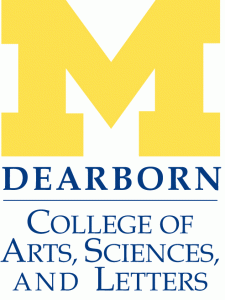
 Nouhad Alame hopes to someday work in the medical field, possibly as a cardiologist.
Nouhad Alame hopes to someday work in the medical field, possibly as a cardiologist.
But before she cures heart defects, the UM-Dearborn sophomore plans to double major in psychology and health policy administration.
Nouhad understands that physicians come across thousands of patients from all walks of life. In order to better prepare herself for the diverse real world, Nouhad plans to pursue a minor in Arab American studies.
“No matter what major you are, it can help you in the future,” she said.
UM-Dearborn’s provost office recently approved the 15-credit interdisciplinary minor, which became available to students this semester.
“It took a lot of work by many people over the years,” said Hani Bawardi, assistant professor of Arab American studies and history.
Ismael Ahmed, associate provost for Integrated Learning and Community Partnerships, believes UM-Dearborn is the first institution nationwide to establish such a minor.
“This is really the only minor that stands on its own in the entire country, so it’s historic,” Ahmed said. “The more cultural competence people have, the more they can work with, do business and live with people in the community. It’s a great opportunity.”
Sally Howell, assistant professor of Arab American studies and history, said she’s already fielded plenty of excitement from students.
“The news that we have the minor coming up has already made a big difference,” Howell said. “They’re very eager to see this happen.”
Students who pursue a minor in Arab American studies will examine the historical, political, economic, literary, artistic, cultural and psychological forces that have shaped and continue to shape the lives and communities of Arab Americans.
“It’s a mix of humanities, social sciences and behavioral sciences,” Howell said. “We’re also going to try and provide some engaged learning classes to coincide with the University’s metropolitan vision. Students would come out of this with a much better idea of Arab American culture and history.”
Bawardi introduced Arab American studies courses at UM-Dearborn five years ago, two of which will be core offerings for the minor.
“Whereas the existing courses attempt to address the breadth of the Arab Americans' complex experiences, the minor will allow us to address specific strands of Arab American life in separate courses, including strengthening links with local institutions and, I hope, translations of untouched Arabic language works that could unlock neglected historiography,” he said.
Student demand, paired with the University’s diverse community, prompted the minor’s inception.
“The UM-Dearborn student body is unique in its ethnic composition, providing a sizable pool of potential Arab American studies minors of both Arab and non-Arab backgrounds,” according to the program proposal.
This semester, Nouhad enrolled in a course that focuses on the history of Islam in the U.S., an introductory class that can be applied to the Arab American studies minor. Nouhad, an Arab American, hopes to learn more about her heritage through her coursework.
“Even as an Arab American, I don’t know much about the history,” she said. “I hear so many things about Arab Americans and I want to be able to intelligently speak about it.”
Like Nouhad, Bawardi contends the Arab American studies minor can benefit students pursuing majors across the board. Whether they’re studying to become a lawyer or an accountant, the minor will help students prepare for a diverse workplace, he said.
Ron Stockton, political science professor, agrees.
“This minor will be of great interest to certain types of people, for example, teachers,” Stockton said. “A teacher with Arab American students, or even a teacher with no Arab American students, would find it valuable to know about this community. My own hope is that more non-Arabs sign up for this minor than Arabs. That would be a great success for us as an educational institution.”
Stockton, Bawardi and Howell hope the University’s implementation of the Arab American studies minor can someday lead to a major.
“This has been sort of a roadblock for developing the Arab American studies program,” Howell said. “With the minor in place, we can expect our enrollments to go up. With this increase in demand, we can show support for an eventual major.”





